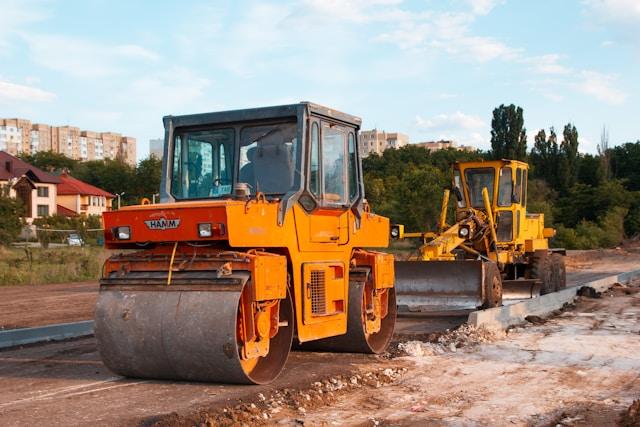From Novice to Pro: The Benefits of Training in Construction Equipment Operation
Navigating the ins and outs of heavy construction equipment can be a daunting task for the uninitiated. However, with the construction industry booming and technology rapidly advancing, the bar for entry—and proficiency—is rising every year. Here, we explore the transformative advantages of professional training for anyone scaling the heights of construction equipment operation, highlighting how it can turn a greenhorn into a seasoned pro.
Mastering the Machines: The Case for Construction Training Courses
The path to becoming proficient in construction equipment operation necessitates a comprehensive approach to education and certification. Within the course offerings of Diggerman Training, you'll find a comprehensive array, covering foundational safety protocols and civil construction certifications to specialized training in operating various types of machinery, such as excavators, bulldozers, and cranes. Safety courses ensure that operators are well-versed in best practices to prevent accidents and injuries on the job site. These certifications not only ensure compliance with industry standards and regulations but also imbue operators with the confidence and competence required to handle complex tasks efficiently and safely.
The Safety Net: Reducing Risks and Accidents
One of the core advantages of official training is how it mitigates the risks associated with using heavy machinery. Construction sites are dangerous places by nature, and inexperience only adds to the danger. A new operator's unfamiliarity with the controls or lack of knowledge of situational awareness can lead to accidents that are both costly and, at times, tragic.
Professional training emphasizes safety procedures and hazard recognition, instilling a safety-first mindset in operators. They learn to identify potential risks, understand the limits of the machinery, and respond appropriately in emergency situations. Practical training components, such as mock operations in controlled environments, allow novices to familiarize themselves with emergency shutdown procedures and other critical responses without the pressure of real-world stakes.
Safety-conscious operations not only protect personnel but also extend to safeguarding the equipment itself and the surrounding environment. In this sector, one wrong move can lead to dire consequences, but with the skills and preparedness that come with training, operators can confidently approach their work with safety and security in mind.
The Efficiency Play: Boosting Productivity and Quality
Beyond safety, training elevates efficiency and ensures that the job is done to the highest standard. When an operator is proficient in the use of the equipment, there's less downtime due to operational errors, a significant reduction in rework, and an overall increase in the quality of work.
Professionally-trained operators can execute tasks with precision, making fewer mistakes that could set a deadline back or compromise the integrity of a structure. Familiarity with advanced systems, such as GPS and telematics, also helps in tackling jobs with strategic planning and error mitigation at the forefront.
Furthermore, a skilled operator can troubleshoot minor issues and perform regular maintenance, which extends the life of the machinery and reduces the need for outside technical support. This self-sufficiency is a testament to the training's comprehensive nature and its impact on both individual careers and the industry at large.
Industry Know-How: Adapting to the Latest Advancements
The construction industry is perpetually evolving, with new and enhanced equipment being introduced regularly. Staying up to date with these advancements is crucial for long-term success. Training programs often cover the latest technological updates and trends, ensuring that operators are not just current but also future-proofed in their knowledge and skills.
In an era where automation and digitalization are becoming the norm, understanding and being adept with these systems is becoming a new standard for operators. Machines now come equipped with smart technologies that cater to specific industry needs, and trained professionals are better equipped to make the most of these tools, leading to a more streamlined and higher-quality project execution.
The Bottom Line: A Cost-Effective Investment
For construction companies, investing in their operators' training is a long-term strategy that translates to the bottom line. Better-trained operators lead to more efficient usage of equipment, reduced downtime, and an overall increase in productivity. These operational improvements directly impact the financial health of the company, making the investment in training a no-brainer when considering the long-term gains.
Additionally, fewer accidents mean lower insurance premiums and less money spent on workers' compensation claims. There's also the intangible benefit of a professional, skilled workforce that can attract more clients and contribute to the company's reputation as a competent and reliable service provider.
Transitioning from a novice to a professional in construction equipment operation can be an arduous but rewarding process. The key to this ascent lies in obtaining quality training that arms aspiring operators with the knowledge and skills necessary to excel in their roles.
The advantages are multifold, from increased safety and efficiency to adaptability to industry advancements and a positive impact on the company's financials. Training represents an investment in a person's career and a commitment to excellence in an industry that thrives on precision, preparedness, and performance.
For those taking their first steps into the world of construction machinery, or for seasoned workers looking to polish their craft in light of innovation, professional training is not an expense—it's an indispensable asset that can elevate one's career and the construction landscape as a whole.

